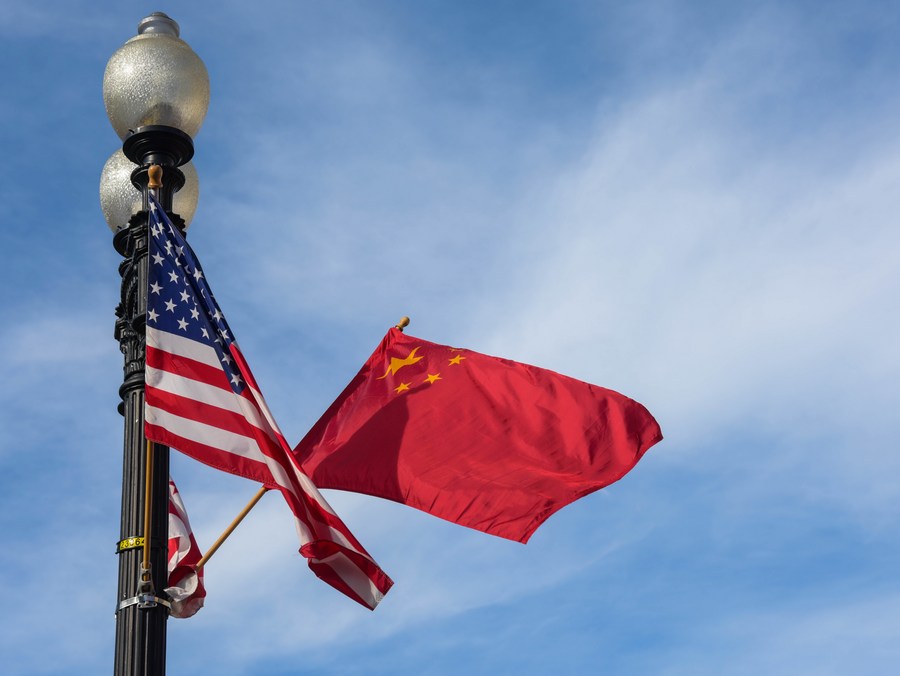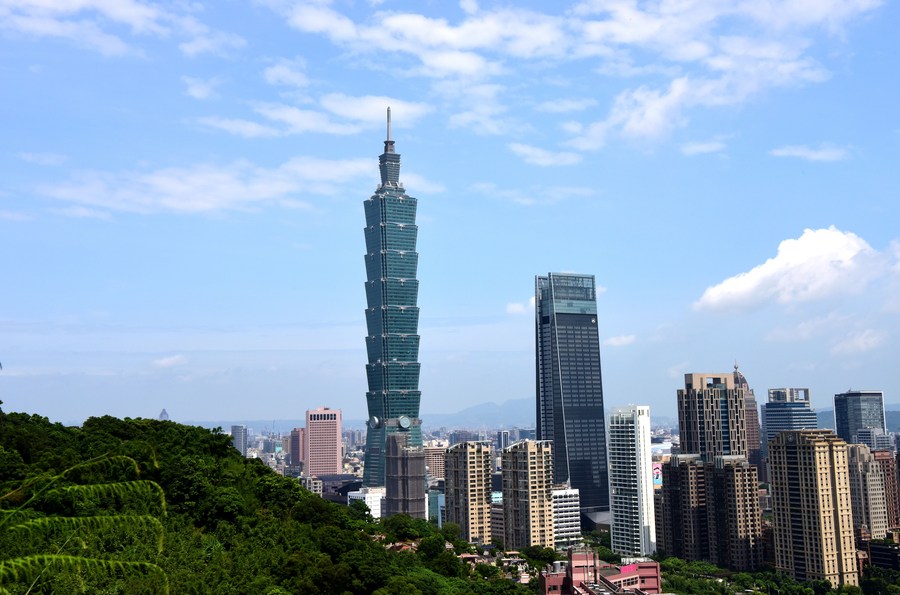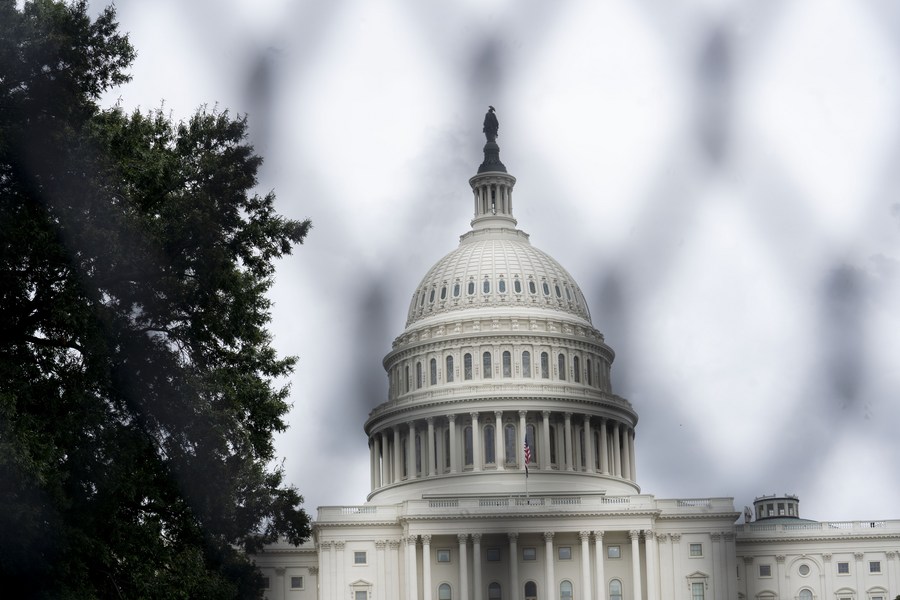Washington should act responsibly in relations with China

File photo shows the national flags of China (R) and the United States as well as the flag of Washington D.C. on the Constitution Avenue in Washington, capital of the United States. (Xinhua/Bao Dandan)
Instead of engaging in vicious competition, Washington should recognize the mutually beneficial nature of the China-U.S. relations.
BEIJING, Nov. 15 (Xinhua) -- Washington has recently declared that the United States and China will "discuss ways to responsibly manage the competition" between the two sides.
Responsible management of what many deem as the world's most important bilateral relationship is certainly imperative. Yet it is worth noting that over the years, Washington is the one that has been acting irresponsibly to undermine its relations with Beijing.
Washington's janus-faced Taiwan approach is utterly typical. While the U.S. government acknowledges that "Taiwan is an integral part of China," some Washington politicians have kept playing the "Taiwan card" in attempts to contain China.

Photo taken on July 21, 2019 from Xiangshan Mountain shows the Taipei 101 skyscraper in Taipei, southeast China's Taiwan. (Xinhua/Zhu Xiang)
America's vicious acts such as selling arms to Taiwan and sending officials to the region for visits have undermined the political foundation of China-U.S. relations, increased uncertainties in their relations, and greatly harmed peace and stability across the Taiwan Strait.
Most recently, U.S. Secretary of State Antony Blinken reiterated that Washington's role is to make sure Taiwan has the means for self-defense, claiming that many countries "would see any unilateral action to use force to disrupt the status quo as a significant threat to peace and security."
These remarks and actions have indicated that Washington has been recklessly stirring up tensions in the Taiwan Strait for its own interests, while being cheeky enough to pretend that it is the good guy that advocates regional peace and stability.
Washington should abide by its solemn commitments made in the three China-U.S. joint communiques, faithfully honor the one-China principle and stop sending wrong signals to the "Taiwan independence" forces.

Photo taken on Sept. 17, 2021 shows the U.S. Capitol building, seen through a barrier fence, in Washington, D.C. (Xinhua/Liu Jie)
Washington has also been aggressive in handling China-U.S. relations in other areas like trade and technologies, trying hard to decouple with, suppress and stigmatize China.
The current U.S. Congress has introduced more than 300 anti-China bills, and the United States has included more than 900 Chinese entities and individuals in various unilateral sanctions lists, which have severely disrupted the normal bilateral exchanges.
At the root of Washington's irresponsible and sometimes even hostile attitude is the you-win-I-lose zero-sum Cold War mentality of some U.S. China hawks. In their world view, China is America's inevitable foe that has to be brought down at all costs. That is why they have been ceaselessly trying to kidnap Washington's China policy and provoking divisions between the two sides.
The Summary of the 2018 National Defense Strategy of the United States pointed out that "inter-state strategic competition ... is now the primary concern in U.S. national security" and defined China as a long-term "strategic competitor" of the United States.
Since the beginning of this year, the U.S. administration has called China the "most serious competitor," and its latest Interim National Security Strategic Guidance has clearly identified China as a "competitor" and "threat."
More fundamentally, to define China-U.S. relations with competition simply contravenes the reality. While it is true that China and the United States have differences, their relations are essentially mutually beneficial.
In contrast with the antagonistic U.S. attitude, China's policy towards the United States has been highly consistent, stable and responsible. China has made unremitting efforts to strengthen dialogue, manage differences, focus on cooperation so as to take China-U.S. relations back to the right track.
Instead of engaging in vicious competition, Washington should recognize the mutually beneficial nature of the China-U.S. relations. And if it truly wants to manage its relations with China in a responsible manner, it should first stop making irresponsible and often highly provocative moves. This is vital to a productive cooperation between the two major countries.
Photos
Related Stories
- China urges U.S. to handle Taiwan question prudently, properly
- Manufactured “Yinhe Incident” an example of U.S. attempts to deliberately provoke China
- Talk seen as chance to put ties back on track
- China, U.S. issue joint declaration on enhancing climate action
- UK PM welcomes China-U.S. joint declaration on enhancing climate action
Copyright © 2021 People's Daily Online. All Rights Reserved.










